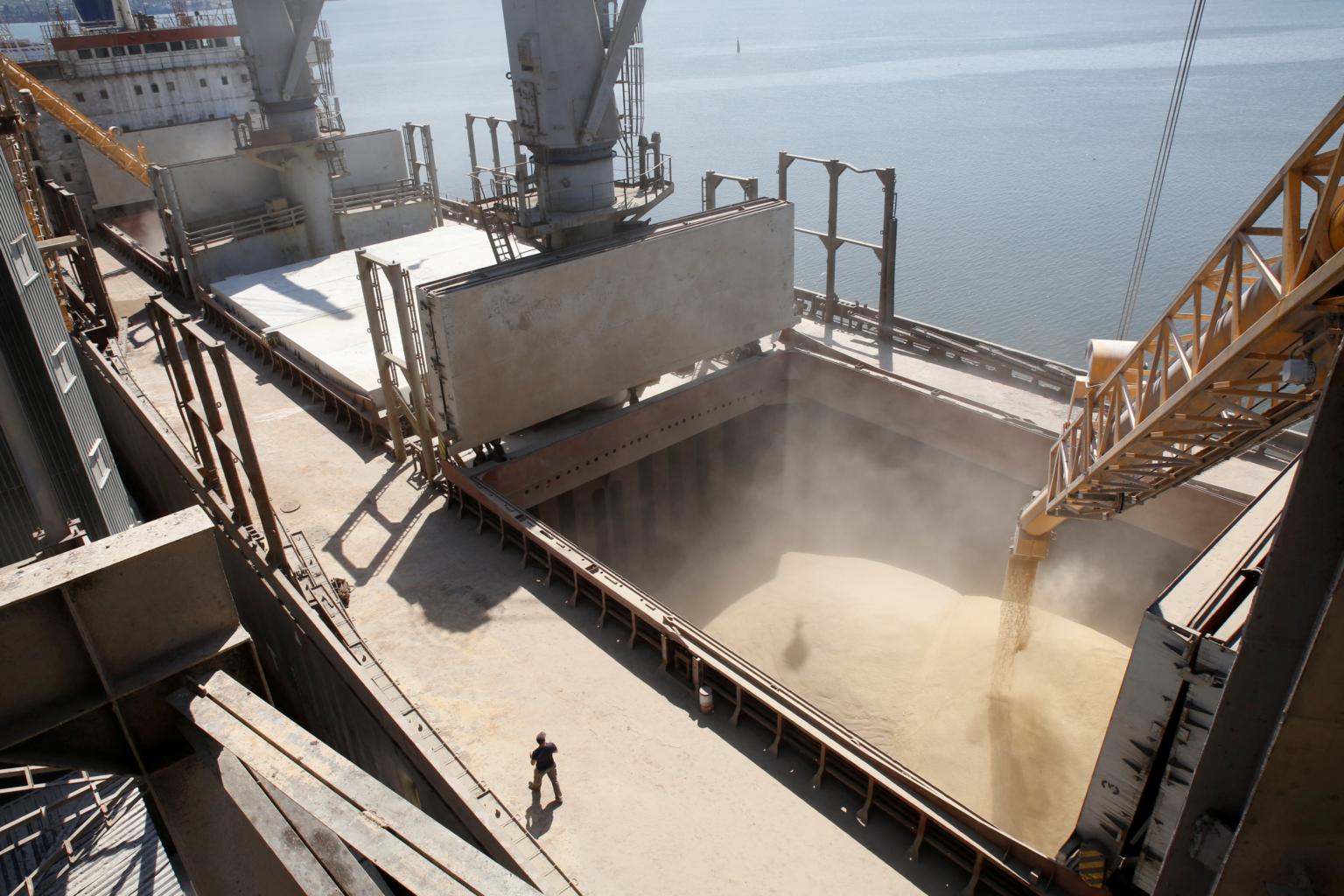Ukrainian grains reach Romanian Black Sea port
Sign up now: Get ST's newsletters delivered to your inbox

The grains from Ukraine had arrived in Romania either by rail or on barges through the Danube river.
PHOTO: REUTERS
BUCHAREST/KYIV (REUTERS, BLOOMBERG) - Ukraine has sent around 80,000 tonnes of grains to the Romanian Black Sea port of Constanta so far, with more expected to arrive, the port's manager said on Tuesday (April 26).
Ukraine's sea ports have been blocked since a Russian invasion two months ago and the country, a major agricultural producer, has been forced to export by train via its western border or via its small Danube river ports into Romania.
European Union member Romania shares borders of the Black Sea - a major shipping artery for grain and oil - with Bulgaria, Turkey, Georgia and Ukraine.
"There are around 80,000 tonnes of grains which have already arrived, they are stored in silos, a part of them were loaded on ship," Constanta Port manager Florin Goidea told Reuters. "Another roughly 80,000 tonnes are approved and en route."
The grains arrived either by rails or on barges through the Danube river, Mr Goidea said, adding the port had the capacity to handle exporting additional grains exports.
The port, which has a storage capacity of around 2 millions tones handled exports worth some 24 million tonnes last year.
As Ukrainian farmers press ahead with fieldwork during the war, they’ll soon be grappling with a fresh problem: where to stash the next harvests.
Russia’s invasion began during a peak period for Ukraine’s corn exports, which has left a hefty volume of grain stuck on farms as ports closed.
While some crops are still trickling out by rail and road, it will take at least 10 months to clear the current crop surplus, Kyiv-based analyst UkrAgroConsult said in a note.
Added to the hurdles, as much as 5 per cent of the country’s grain elevators have suffered damage from the war and another 15 per cent can’t be accessed, UkrAgroConsult estimates.
That could leave farmers running short of storage space by autumn, even with harvests expected to shrink by about half versus last year.
There should be enough room for the first-collected crops, such as wheat, while others reaped later like corn could face a storage crunch unless seaborne trade resumes.
The International Grains Council estimates that Ukraine’s grain stockpiles ahead of the next harvests will be quadruple the norm.
“If the Black Sea blockade by Russian warships continues until September, this could be a serious obstacle to further development of the agricultural sector,” UkrAgroConsult analyst Maryna Marynych said.
“It is quite probable that some farmers will have to leave corn in the fields until next spring, which will certainly affect the grain quality and price.”


